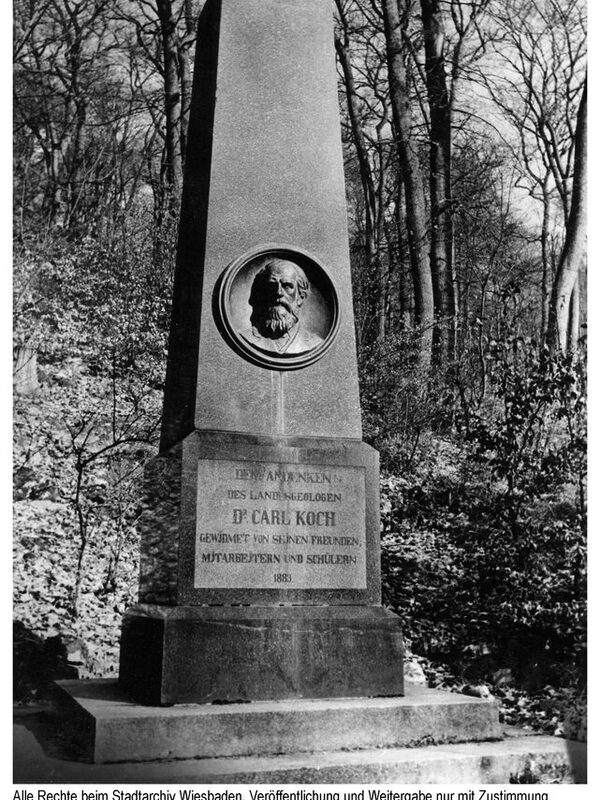Cook, Carl
Koch, Carl Jacob Wilhelm Ludwig
Montangeologist, paleontologist, zoologist
Born: 01.06.1827 in Heidelberg
died: 18.04.1882 in Wiesbaden
Carl Jacob Wilhelm Ludwig Koch attended grammar school in Heidelberg and also began studying natural sciences there in 1846. In 1848, he transferred to the University of Marburg and completed his studies at the University of Giessen in 1850. He then concentrated on mining, particularly gypsum and silver mining (on the Neckar and in the Black Forest).
Koch married the daughter of the owner of the Burger ironworks near Herborn, Lahn-Dill district, and thus had to take on corresponding tasks in mining and smelting (red iron ore mining; blast furnace at Oberscheld). He was employed here for twelve years.
Due to a severe sales crisis in the mining industry, he had to turn to other activities and initially focused on bats and spiders, which he had become acquainted with in underground mining and about which he wrote monographs. He taught at the mining school in Dillenburg and eventually went to Frankfurt as a teacher of natural sciences and mathematics.
From 1872, he also taught at Hof Geisberg (Hof Geisberg Agricultural School) and at the Fresenius Institute (Fresenius Chemical Laboratory) in Wiesbaden. As state geologist for the administrative district of Wiesbaden, he mapped 17 map sheets at 1:25,000, mainly the Taunus and Taunus foreland, and thus created the basis for the water supply of the city of Wiesbaden through deep tunnels, among other things.
From 1880, he was secretary of the Nassau Association for Natural History and museum inspector in Wiesbaden.
The Carl Koch memorial in the Nero Valley commemorates the former state geologist.
Literature
- Kutscher, Fritz
Karl Koch's monument in the Nero valley near Wiesbaden. In: Jahrbücher des Nassauischen Vereins für Naturkunde 97, Wiesbaden 1964.
- Czysz, Walter
175 Jahre Nassauischer Verein für Naturkunde und Naturwissenschaftliche Sammlung des Museums Wiesbaden 1829- 2004. Jahrbücher des Nassauischen Vereins für Naturkunde 125, Wiesbaden 2004.
- Merlot, Christa
2000 stones by the wayside. The rock collection of Carl Koch in the Landesmuseum Wiesbaden. In: Jahrbücher des Nassauischen Vereins für Naturkunde 129, Wiesbaden 2008. (pp. 37-72)
